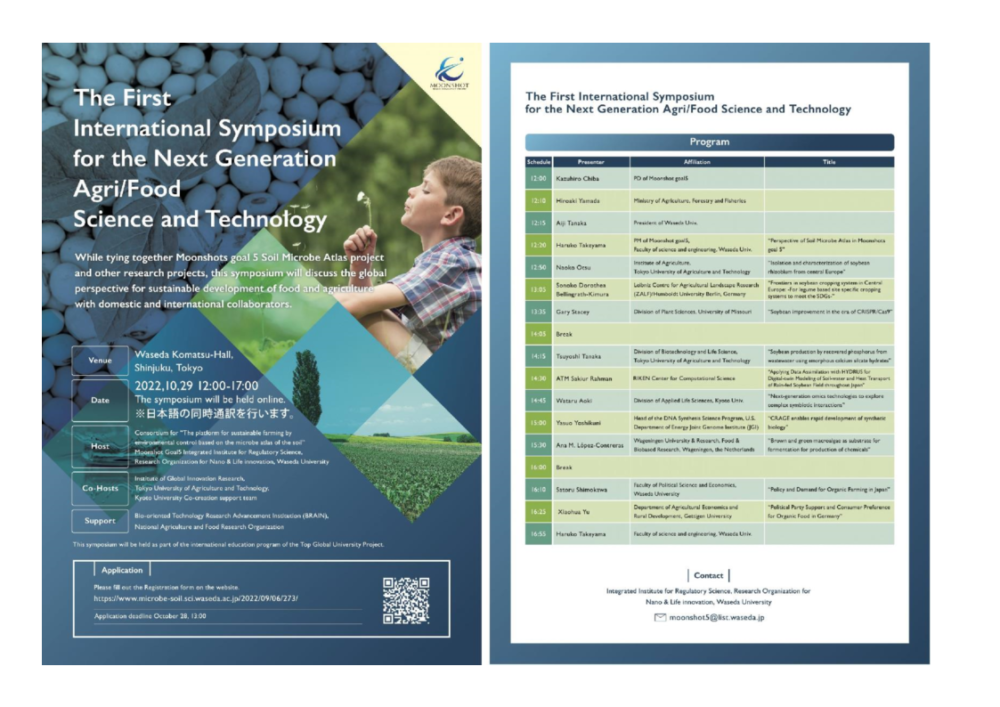Event
【GIR Open Seminar】Dr. Sonoko D. Bellingrath-Kimura / Leibniz Centre for Agricultural Landscape Research (ZALF) (Germany)・Dr. Gary Stacey / University of Missouri (U.S.A.)

| Date | 2022.10.29 (12:00 - 17:00) |
|---|---|
| Venue | |
| Google Classroom Code | fy2bdhn |
| Speaker | Dr. Sonoko D. Bellingrath-Kimura / Dr. Gary Stacey |
| Affiliation | Leibniz Centre for Agricultural Landscape Research (ZALF) / University of Missouri (Germany / U.S.A.) |
| Title | International Symposium "The First International Symposium for the next generation Agri/Food Science and Technology" Resigstration form https://my.waseda.jp/application/noauth/application-detail-noauth?param=O2glHvKnJ1bMplUgJD8L5w&subsessionWindowId= --------------------------------------------------------------------------------------------------------------------------------- ◆13:05~ Dr. Sonoko D. Bellingrath-Kimura Title:"Frontiers in soybean cropping system in Central Europa:- For legume based site specific cropping systems to meet the SDGs –" <Abstract> Legumes are important crop as protein source, though the self-sufficiency of cereal legumes are very low in EU (Watson et al. 2016). Due to the importance for protein sources, but also for the high environmental benefits contributing to meet the SDGs, the area of cereal legumes are increasing in the recent years. Soybean is one of the most rapidly expanding legumes in Germany. To integrate the soybean into the cropping system, it is necessary to use site adopted variety as well as symbiosis system. Recent results on genotype-rhizobium interaction and new insides how to adopt to site heterogeneity will be presented. ◆13:35~ Dr. Gary Stacey Title:“Soybean improvement in the era of CRISPR/Cas9” <Abstract> Soybean possesses a complex, duplicated genome, which presents challenges to genetic improvement. CRISPR/Cas9 genetic editing methods have accelerated our ability to modify the genome. We are focused on improving soybean seed content and stress tolerance, as well as basic studies of the soybean-rhizobium symbiosis. Our laboratory has contributed to the development of a large transcriptional atlas that has aided the functional annotation of the genome. The net effect of our efforts and others is to enable soybean to be viewed as a viable genetic model for plant studies, approaching the utility of other model plant species. |
| Language | English |
| Intended for | Registration is required. |
| Co-Organized by | Institute of Global Innovation Research Excellent Leader Development for Super Smart Society by New Industry Creation and Diversity The Moonshot Program for Agriculture, Forestry and Fisheries |
| Contact | Institute of Global Innovation Research, Institute of Agriculture Prof. Naoko Ohtsu Email: nohtsu (at) cc.tuat.ac.jp |
| Remarks | The International Symposium |
このページの上部へ